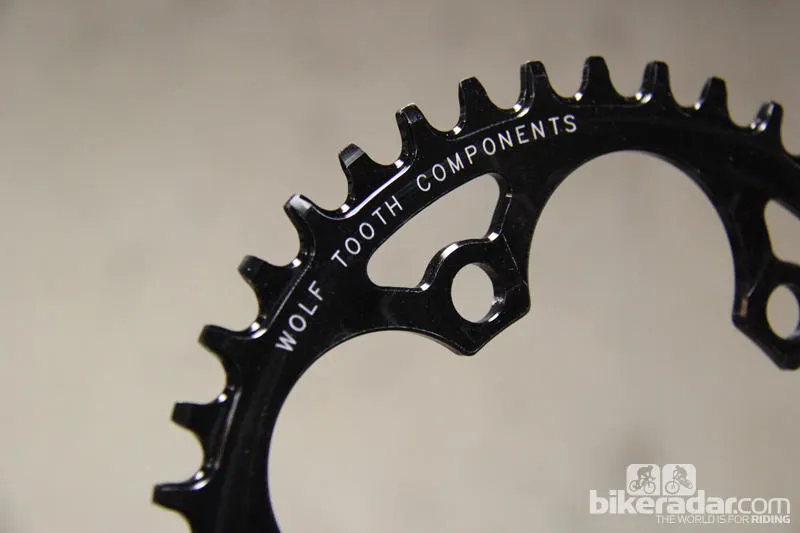The proliferation of companies producing narrow/wide chainrings similar in design and function to SRAM’s X-Sync chainrings for the XX1 and XO1 drivetrains has not gone unnoticed by the component manufacturer.
SRAM looks to be taking the next step by offering to license its narrow/wide chainring profiles to other companies. In December the company signed licensing agreements with the Canadian bicycle and component manufacturer Chromag and the Accell Group, parent company of number of bicycle brands, the most well known being Raleigh, Diamondback, Lapierre and Redline.
“Both of these top-tier industry suppliers will be manufacturing their own versions of SRAM’s X-SYNC rings, to be distributed through their own networks," SRAM said in a press release. "Both suppliers will continue to use and support all SRAM 1X Drivetrain components in addition to this license.
This narrow-wide design (also referred to as thick-thin) is an original SRAM technology, designed and engineered to be paired with matching SRAM components to ensure proper function. Imitation rings not manufactured to proper SRAM specifications may result in rapid wear and poor mud clearance, both of which may result in dropped chains.
SRAM has filed numerous patent applications on narrow-wide/thick-thin tooth geometry. Our German engineering teams invented narrow-wide/thick-thin chain retention for bicycles and we continue to improve on it. We strongly believe consumers deserve both choice and design integrity in the products they purchase. SRAM reserves the right to enforce its intellectual property in all matters relating to X-SYNC.”
If imitation is indeed the most sincere form of flattery, SRAM should hold its head high, as it is awash in a sea of X-SYNC imitators—Wolf Tooth, Absolute Black, Race Face, MRP, e*thirteen, Pacenti and Endless Bike Company are among the growing number of companies producing their own narrow/wide chainrings.
The issue of who, if anyone, owns the rights to the narrow/wide design is muddied by the fact that it is unclear what recourse SRAM has when it comes to protecting its design.

No one disputes that SRAM was the first company to incorporate narrow/wide chainring technology into a mountain bike drivetrain. Another, now expired, patent appears to leave room for competing designs
Gehl, a Wisconsin-based manufacturer of heavy machinery for construction construction and agriculture, filed a patent for alternating width sprockets in 1978. Patent 4174642 for a “Chain Drive Including Sprocket Having Alternate Wide And Narrow Teeth” has since expired. Click here to read the text of the original patent.
SRAM has sought several new patents on its X-Sync chainrings as well. One of SRAM’s recent X-SYNC patent applications can be found here.

Part of the appeal of aftermarket narrow/wide chainrings is that they are offered in a wider variety of tooth counts and bolt circle diameters (BCDs) than SRAM's own X-SYNC design. Many are also more affordable, too
Some narrow/wide chainring manufacturers claim they have incorporated existing technologies, not covered by SRAM’s patents, into their designs. Others claim their chainrings incorporate technologies and tooth profiles that are unique.
Wolf Tooth, for example, claims the dimensions of its chainrings conform to the now-expired Gehl patent, which, according to a patent expert we spoke with, may make the technology public domain.
Todd Bischoff, director of product and marketing for e*thirteen notes that while his company’s recently-introduced Guiderings feature alternating thicknesses, the tooth profiles are markedly different from other narrow/wide chainrings on the market. “We’re not too worried about patent issues with SRAM’s design,” said Bischoff.
SRAM declined to comment on future licensing agreements or what plans, if any, the company has to enforce its patent claims against the growing numbers of narrow-wide chainring manufacturers.
